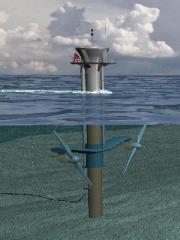Tidal Power Pros and Cons Comparing to Other Sources of Energy
Aug 11

- The tidal power pros and cons should be considered carefully, as well as the benefits and drawbacks of other energy sources
- There are many sources of renewable energy in addition to tidal energy, and a combination of these may be needed to meet the increasing energy demands of the world
- Tidal power is very clean and efficient, but there are some disadvantages as well
Tidal power pros and cons must be evaluated, and compared to the pros and cons of other energy sources, to determine which ones are the best for the earth and the environment, as well as being the most effective at meeting the global demand for power. The tides ebb and flow, and this is caused by the gravitational pull of the moon, and to a lesser degree the sun, on the earth. Unlike the wind and sun, the tides can be predicted, and they occur at regular intervals twice every single day. This means any shortage in supply can be prevented, and these shortages can cause brownouts and blackouts because there is too much demand. Tidal power pros and cons should be carefully considered against every other alternate renewable energy source, as well as all the fossil fuels, so that the best choice can be made. Another benefit of tidal energy is the fact that this process does not emit greenhouse gases or particle pollution, which fossil fuels like oil and coal do, which can have a devastating effect on the environment and all living things on the planet. There is no mining or drilling involved either, which can rip up large chunks of the earth or poison the seas.
Tidal power pros and cons when compared to biomass are mixed. Biomass programs can include municipal waste to energy programs, which will clean up the garbage which litters the earth and waters, as well as all other organic material which is discarded or not used. Algae and fungus species, as well as plants, trees, and other materials, can also be used to generate biofuels and electricity. Many of theses processes have greenhouse gas emissions though, including carbon and methane among others, and tidal energy generation does not have these emissions or pollution present. Some biomass, including trees and plants, absorb some carbon and help filter the air while growing, so this does help offset any emissions from the biomass. Biomass is very flexible, with a large number of feedstocks available that can be modified depending on the location. This is not true of renewable power that is supplied by the tides. The future of energy does not necessarily lie in one specific alternative renewable energy source, but rather in a blend of different sources which will allow for flexibility. Once the tidal power pros and cons are evaluated against all other possible sources, it quickly becomes apparent that the tides will be one place where energy will be generated much more abundantly as technology advances.
Related Posts
- Tidal Wave Energy Generators – Updated Article With New Information
- How Does a Wave Energy Generator Work?
- The Science of Saltwater Cloud Making: can it Help Drought Areas?
- Tidal Power Pros and Cons Comparing to Other Sources of Energy - Updated Article With Extra Information
- Pros and Cons of Hydropower
Leave a Reply
You must be logged in to post a comment.




